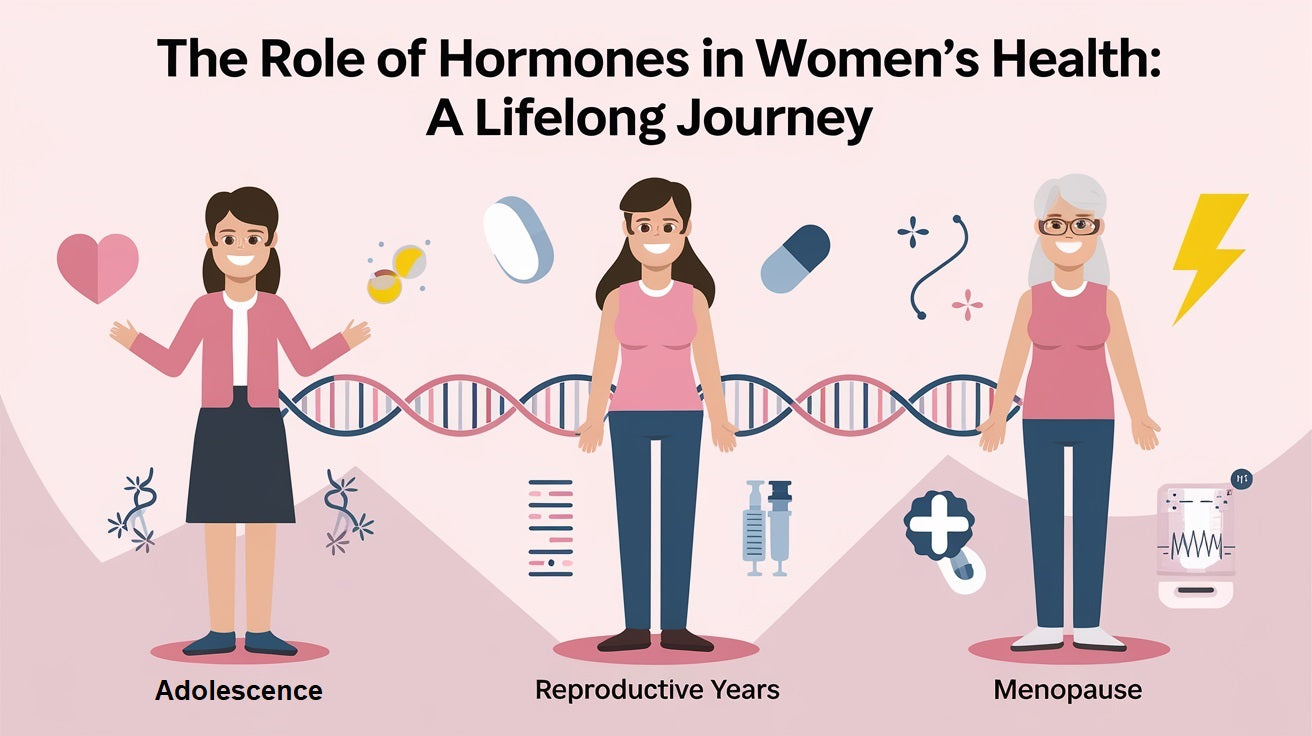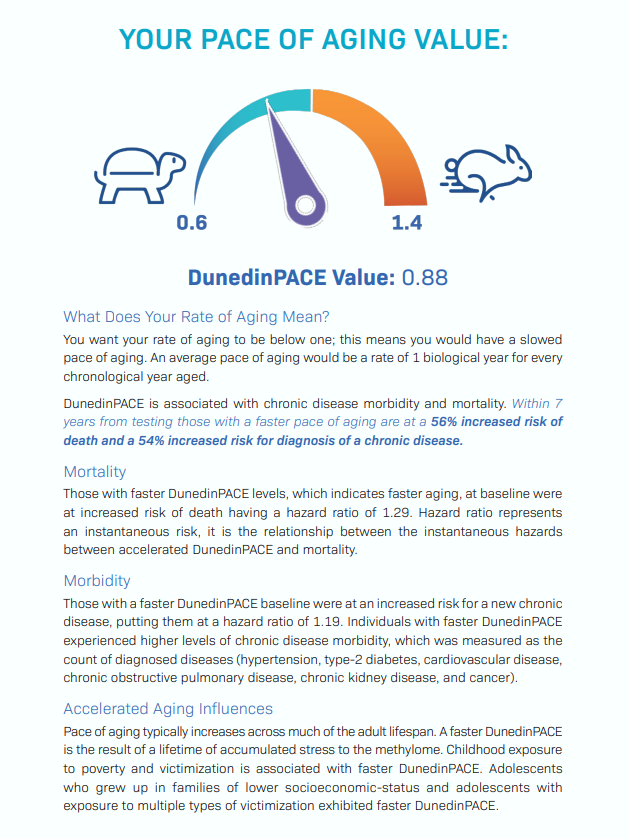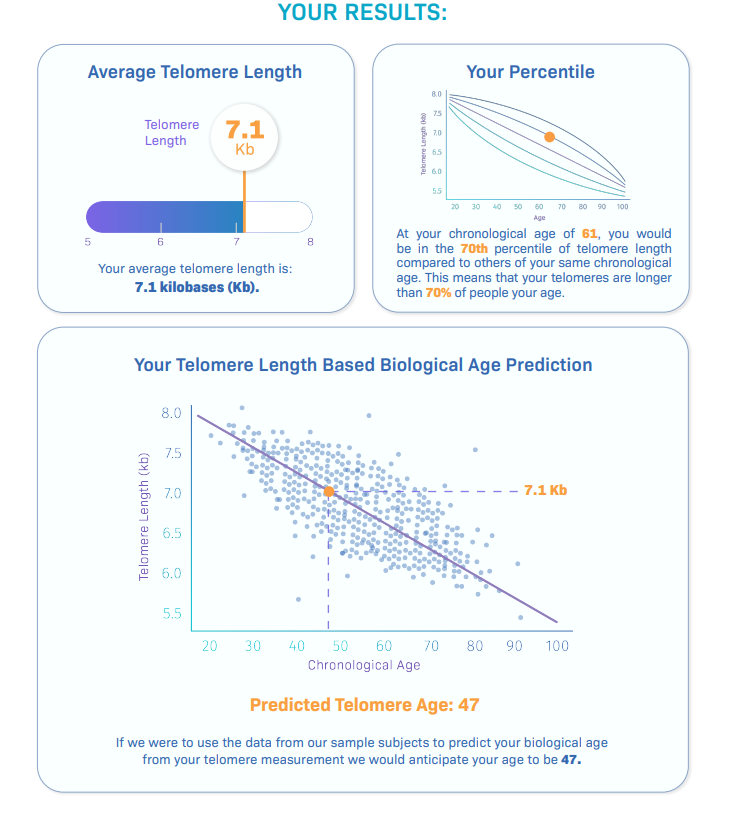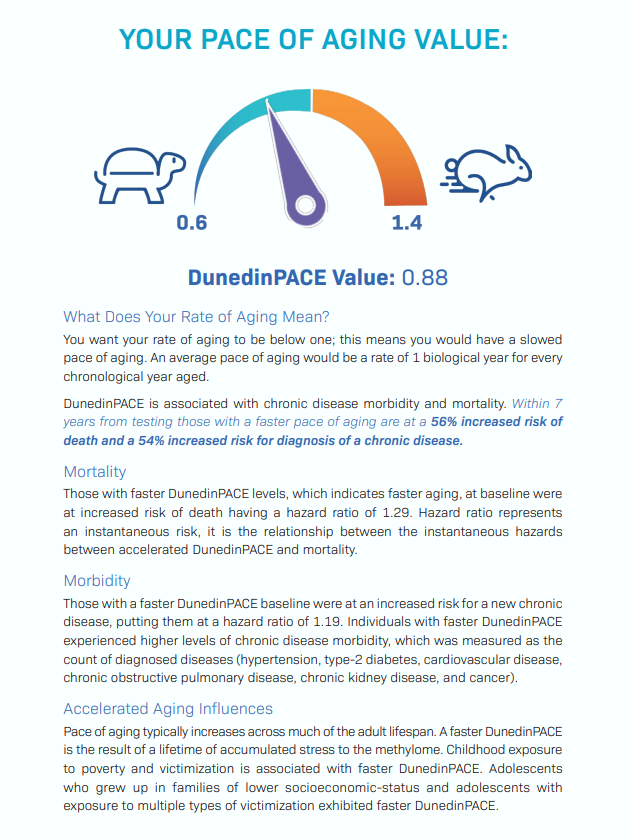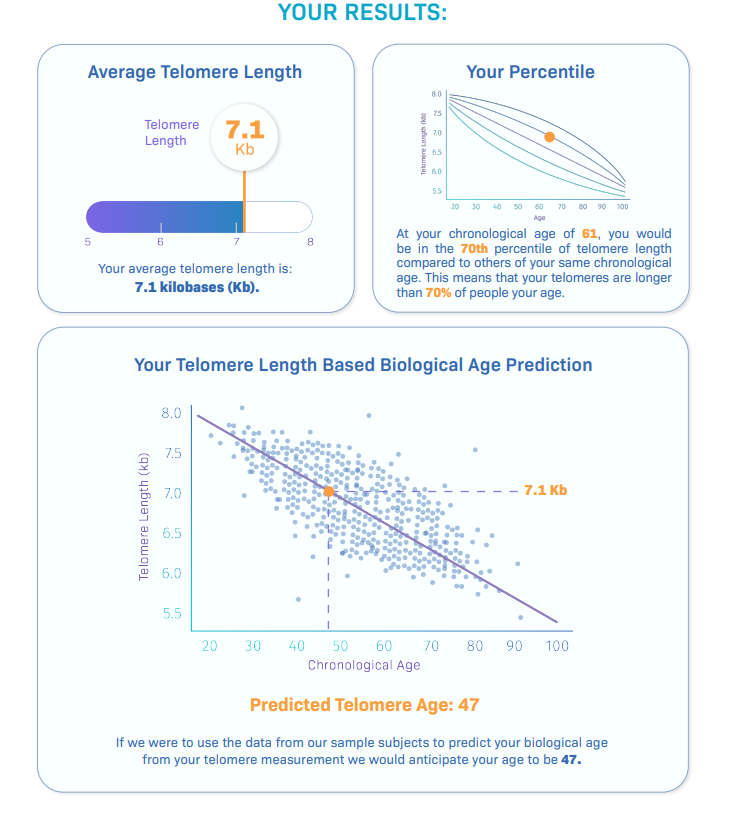Despite the crucial role hormones play in women's health, there remains a significant gap in research specifically focused on women's hormonal health. This has led to a lack of understanding and tailored treatments for many hormone-related conditions. Let's explore the key hormones across different life stages and their impact on well-being, using simple analogies and illustrations to make it easy to understand.
"Health is the greatest gift, contentment the greatest wealth, faithfulness the best relationship." – Buddha
Adolescence (12-18 years)
Primary Hormones:
-
Estrogen: Think of estrogen as the artist who paints the picture of puberty, bringing on curves, growth, and the start of menstrual cycles.
-
Progesterone: This hormone is like the event planner, setting up the body for a potential pregnancy every month.
-
Follicle-stimulating Hormone (FSH): Imagine FSH as the gardener, nurturing the growth of ovarian follicles.
-
Luteinizing Hormone (LH): LH is like the fireworks operator, triggering the release of an egg (ovulation).
-
Testosterone: Even in girls, this hormone is the personal trainer, boosting muscle strength and energy.
-
Growth Hormone (GH): GH is the magic beans, making you grow taller and stronger during puberty.
Secondary Hormones:
-
Thyroid Hormones (T3 and T4): These are the body’s thermostat, keeping metabolism and energy levels steady.
-
Insulin: Insulin is like the key that unlocks cells to let sugar in for energy.
-
Cortisol: Think of cortisol as the stress manager, helping you deal with pressure.
-
Melatonin: Melatonin is the sandman, helping regulate your sleep cycles.
"To keep the body in good health is a duty... otherwise we shall not be able to keep our mind strong and clear." – Buddha
Reproductive Age (19-45 years)
Primary Hormones:
-
Estrogen: Estrogen continues to be the life artist, supporting reproductive health, bones, and heart health.
-
Progesterone: The event planner is still key, ensuring the uterus is ready for a possible pregnancy.
-
FSH: The gardener keeps nurturing your ovaries.
-
LH: The fireworks continue monthly with ovulation.
-
Prolactin: This is like the milkman, helping produce milk for breastfeeding.
-
Oxytocin: Known as the love hormone, it’s like a bonding glue, especially during childbirth and breastfeeding.
-
Thyroid Hormones (T3 and T4): The body’s thermostat remains crucial.
Secondary Hormones:
-
Insulin: The key that regulates blood sugar continues its work.
-
Cortisol: The stress manager remains on duty.
-
Leptin: Leptin is the appetite referee, signaling when you’ve had enough to eat.
-
Ghrelin: Ghrelin is the hunger cheerleader, boosting your appetite.
-
Parathyroid Hormone (PTH): This is like the calcium manager, ensuring your bones stay strong.
-
Calcitonin: The calcium balancer, opposing PTH’s actions.
-
Testosterone: Continues to be the personal trainer.
"The greatest wealth is health." – Virgil
Perimenopause and Menopause (45+ years)
Primary Hormones:
-
Estrogen: The artist's role declines, affecting bones, heart, and general well-being.
-
Progesterone: The event planner steps back as menstrual cycles end.
-
FSH and LH: The gardener and fireworks operator’s roles diminish.
-
Thyroid Hormones (T3 and T4): The body’s thermostat remains crucial.
Secondary Hormones:
-
Cortisol: The stress manager’s role is still vital.
-
Insulin: The key for blood sugar regulation continues its work.
-
Parathyroid Hormone (PTH): The calcium manager remains important for bone health.
-
Aldosterone: Think of this as the water regulator, managing fluid balance and blood pressure.
-
Relaxin: This hormone helps ease menopausal symptoms.
"Take care of your body. It's the only place you have to live." – Jim Rohn
Across All Ages
Consistent Importance:
-
Thyroid Hormones (T3 and T4): The body’s reliable thermostat.
-
Insulin: The blood sugar key.
-
Cortisol: The ever-present stress manager.
-
Melatonin: The regular sleep guide.
-
Leptin and Ghrelin: The appetite balance team.
-
Parathyroid Hormone (PTH) and Calcitonin: The dynamic duo managing calcium.
-
Oxytocin: The bonding agent and stress reliever.
Epigenetics and Women's Health
Epigenetic Modifications:
-
DNA Methylation: This involves adding a methyl group to DNA, which can turn genes on or off. It's like putting a bookmark in a book to mark important pages.
-
Histone Modifications: Histones are proteins around which DNA winds. Modifying these proteins can change how tightly DNA is wound, affecting gene expression.
-
Non-coding RNA (ncRNA): These are RNA molecules that don't code for proteins but can regulate gene expression.
Impact on Reproductive Health:
-
Infertility and Pregnancy Complications: Epigenetics changes can influence fertility and pregnancy outcomes. For example, pollutants like heavy metals and endocrine disruptors can alter gene expression through epigenetic mechanisms.
-
Maternal Diet and Lifestyle: A mother's diet and lifestyle choices can lead to epigenetic changes that affect her offspring's health. For instance, poor maternal nutrition can impact embryonic development and the child's health later in life.
Epigenetic Clock:
-
Age at First Birth (AFB) and Sexual Development: Studies have shown that earlier age at first birth and first sexual intercourse can accelerate epigenetic aging, which is linked to age-related health conditions.
Future Research Directions:
-
Gene Editing: Researchers are exploring gene editing techniques to mitigate epigenetic changes and improve outcomes for conditions like infertility and reproductive disorders.
The Role of Testing in Women's Health
Genetic Testing: Can help identify specific vulnerabilities to hormone-related conditions and predict responses to certain treatments. For instance, genetic predispositions to conditions like PCOS, thyroid disorders, or osteoporosis can be better managed with this information.
Blood Testing: Regular blood tests can monitor hormone levels, helping to detect imbalances early. This is crucial for managing conditions like diabetes, thyroid disorders, and reproductive health issues.
MapmyGenome Testing Services: MapmyGenome offers a range of genetic tests that can provide insights into hormone-related health conditions. Their tests include:
-
GenomePatri: Provides comprehensive health and wellness insights.
-
MapmyBiome: Focuses on gut health and its impact on overall well-being.
-
OncoMap: Assesses hereditary cancer risks and helps in early detection.
-
BabyMap: Offers screening and diagnostic tests for maternal and child health.
-
RareMap: Helps uncover genetic factors related to rare diseases.
Summary of Key Hormones and Testing Options
| Hormone | Role | Testing Options |
| Estrogen | Puberty, reproductive health | Genetic, Blood |
| Progesterone | Menstrual cycle, pregnancy | Genetic, Blood |
| FSH | Ovarian function | Blood |
| LH | Ovulation | Blood |
| Prolactin | Milk production | Blood |
| Oxytocin | Bonding, childbirth | Blood |
| Thyroid Hormones | Metabolism, energy | Genetic, Blood |
| Insulin | Blood sugar regulation | Blood |
| Cortisol | Stress management | Blood |
| Growth Hormone | Growth and development | Blood |
| Testosterone | Muscle strength, libido | Genetic, Blood |
| Melatonin | Sleep regulation | Blood |
| Leptin | Appetite regulation | Blood |
| Ghrelin | Appetite stimulation | Blood |
| Parathyroid Hormone | Calcium regulation | Blood |
| Calcitonin | Calcium balance | Blood |
| Aldosterone | Fluid balance, blood pressure | Blood |
| Relaxin | Eases menopausal symptoms | Genetic, Blood |
Recommended Reading and References
-
"The Hormone Cure" by Dr. Sara Gottfried: Practical advice on balancing hormones naturally through diet, exercise, and lifestyle changes.
-
"The Endocrine System at a Glance" by Michael A. Schwarzenberg and Stefan H. Heinemann: A comprehensive guide to understanding the endocrine system and its hormones.
-
"Hormone Health: The Ultimate Guide to Understanding Your Hormones and Achieving Optimal Health" by Dr. Natasha Turner: Insights into how hormones affect health and strategies for maintaining hormonal balance.
-
"WomanCode" by Alisa Vitti: Focuses on balancing hormones through nutrition and lifestyle changes, especially for women with PCOS.
-
"Period Repair Manual" by Lara Briden: A practical guide to understanding and managing


